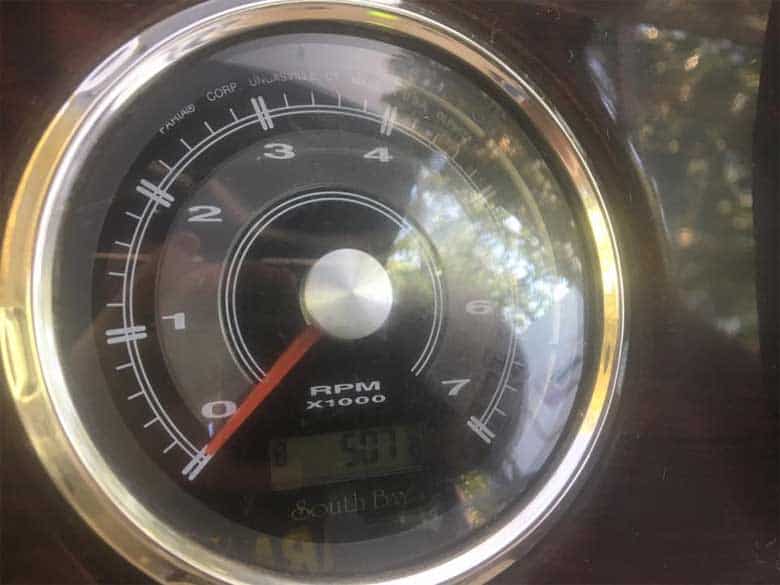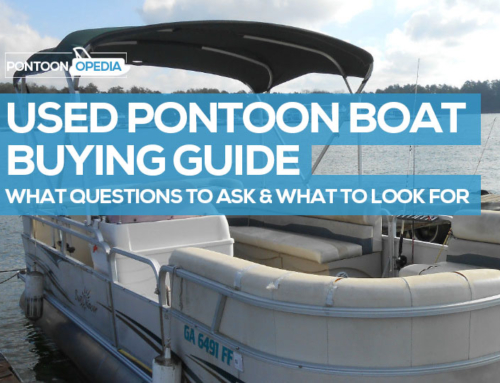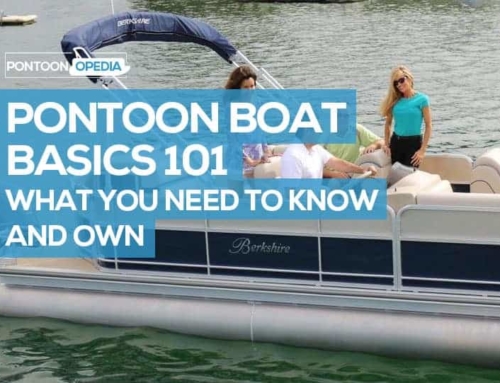This week I received a question on Facebook from a guy in Connecticut who was in the starting to think about buying his first ever pontoon. This is the question he posed about hours on the motor:
“I am not a pontoon boat owner just yet, but I have been researching and looking. I could really do with something being clarified for me. I’m seeing a lot of used pontoon boats for sale and either not providing the hours on the motor because they do not know it, or it doesn’t actually have an hour meter. Would somebody buy a boat without knowing the number of hours or on the motor? I am looking for used. I feel like I would want to know that before I buy. What’s your advice?”
Great question, and the quick answer I would give would be a no. But let me just clarify some points.
Firstly, would you buy a used car or truck without knowing how many miles were on the clock? I know that I certainly wouldn’t. I apply a similar logic to pontoon boat hours.
How You Can Find Out Hours on a Pontoon Motor?
If the seller can’t tell you how many hours are on the pontoon’s motor, then there is something you can do to access this information.
The electronics on the boat will know, so someone with the correct software and tools should be able to pull the hours off of a newer motor. The best people to do this would be marine mechanics.
But this only applies to more modern pontoons where a dealer or mechanic can run a scan on the ECU (engine control unit).
It’s a relatively simple process, as marine techs and mechanics are able to plug this diagnostic program into the engine which produces a printable download on the hours and how the boat was used. This will give an hour reading for every 1,000 rpms – this lets you see how hard the boat has been run, and provides any codes thrown by the engine.
It will include how many hours the boat was running at idle speed, or on wide open throttle.
Now if the seller has nothing to hide, he or she will gladly agree to this in order to verify hours. I would even ask them to foot the bill for this quick procedure. If they want the sale, and are honest, then they should not have any issue in doing so.
But what if it’s an older pontoon boat without an hour meter, or read-out from the ECU? This will apply to just about anything that was manufactured prior to the year 2000.
In cases such as this you should get a mechanic to run a compression test on the motor after a short warm up. Compression tests don’t lie about the condition of the motor. Even a newer motor with an ECU could be bad if not maintained properly.
You’ll have to sometimes ask a dealer’s mechanic what the normal compression should be for certain motors. 2 strokes will be different than 4 strokes. But cylinders should all be within 5% of one another or there may be problems going on internally.
Why Doesn’t the Seller Already Know the Hours?
Another good question!
If they don’t know the hours they more than likely did not pay much attention to the maintenance that goes hand in hand with owning a pontoon. So, this might even be an indicator as to the boat not having been cared for.
I would expect the owner or dealer to have had a mechanical check the boat before it went on sale to run a report on the hours before someone would buy it. If they haven’t, that raises a few flags to me.
I personally believe that there should be a law requiring a certified hour meter, just like the odometer in your car. I know people who have walked away from many used boats just for that reason alone where the seller is unable or unwilling to verify hours.
At the end of the day, I’m not going to buy a used boat and check the hours after the fact… and you shouldn’t too.
Which is another reason to possibly walk away from the deal, unless of course the hour check comes back good, and the boat is in good working order.
Are Hours on a Pontoon Motor Important When Buying Used?
When buying a second-hand pontoon boat, I would say that motor hours are less of a concern than the actual maintenance and treatment of the motor.

Over 500 hours, works like a dream.
Have a boat mechanic check it out if you’re not qualified to make this assessment yourself, whilst at the same time asking them to run a diagnostic check to see the motor hours as described earlier.
How Many Hours Can You Put on a Pontoon Motor?
This type of question provokes a lot of divided opinion.
It can depend on the type of motor. There will be variables at play here such as is it 2 stroke or a 4 stroke, how old is it, how it has been used and in what conditions, who the manufacturer is, and so on; some are more trouble-free than others.
But, from what I understand around 50 hours a season is an amount that many pontooners consider fair usage.
Should You Really Worry About the Hours?
In all honestly, yes, give it some consideration, but the most important factor is how the pontoon has been treated and maintained.
I have a friend with a 25-year-old motor which has been regularly maintained and works just fine. It’s not the hours, it’s the treatment and condition.
Personally, I have seen a Yamaha 250hp (4 strokes) with over 5,000 hours on the clock running like a champion. In the 2 strokes range I have seen great pontoon boats with 4,000 motor hours. The key is how they have been maintained.
Conclusion
To conclude, I would not buy a used or second-hand pontoon boat without knowing how many hours were on the motor.
But, it’s easy enough in most cases to find out.
High motor hours shouldn’t be your only consideration in buying though, it truly is down to how well the pontoon has been looked after.
Before you decide to buy, get a full mechanic’s check including an ECU read-out and compression check.






